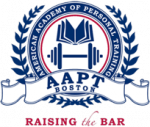Do I Need to Learn About Nutrition to be a Personal Trainer?
Personal trainers will encounter all types of clients as they work, but a common theme among clients is either wanting to lose weight, gain muscle, or both. While a great exercise plan will help reach those goals, good nutrition plays a major role too. Before you become a personal trainer it’s important to have a good understanding of nutrition, but also understand what you are and are not certified to tell your client.
How Personal Trainers Can Help Their Clients with Nutrition
Personal training courses include lessons about nutrition to provide you with a better understanding of carbohydrates, protein, fat, sugar, and how the body processes calories. You can use that information to guide a discussion with your client about what a typical day of their eating looks like and offer suggestions on how to improve. For instance, you can encourage a client to add more protein and healthy fats to their diet or increase their water intake. Improving your client’s nutrition will help them perform better during training sessions and get them to their goal faster. Your personal training course will provide a good foundation of knowledge to ensure you’re giving your client accurate and safe recommendations. Despite the fact that you’re learning what seems like a lot about nutrition, there’s still a lot more to know. Because of that, personal trainers cannot act as registered dietitians.
Additional Certifications and Education
Further education about nutrition to become a registered dietitian allows you to do much more than just offer suggestions to your clients. A registered dietitian can prescribe a specific diet, diagnose medical conditions, and help manage certain health conditions through diet. While a personal trainer can say “adding more protein to your diet could improve your results from our training sessions” they cannot say “eating this specific diet will cure your medical condition and treat your obesity”. Knowing what you are and are not qualified to tell your client will protect your own reputation and prevent potentially harming a client with misinformation. Personal trainers can refer their client to a dietitian if they suspect there’s a serious issue linked to poor nutrition or if their client needs to be prescribed a specific diet plan.
American Academy of Personal Trainers: Boston’s Leading Education Provider for Personal Training for Aspiring Professionals
If you’d like to expand your nutrition education beyond the basics that you’ll learn in a personal training course, X has options for you! Not only are we the leading personal training program in the Boston area, but we also have a variety of courses to further your understanding and certifications regarding nutrition. Contact us today to learn more about enrolling in personal training courses or expanding your education to improve your client’s nutrition.




